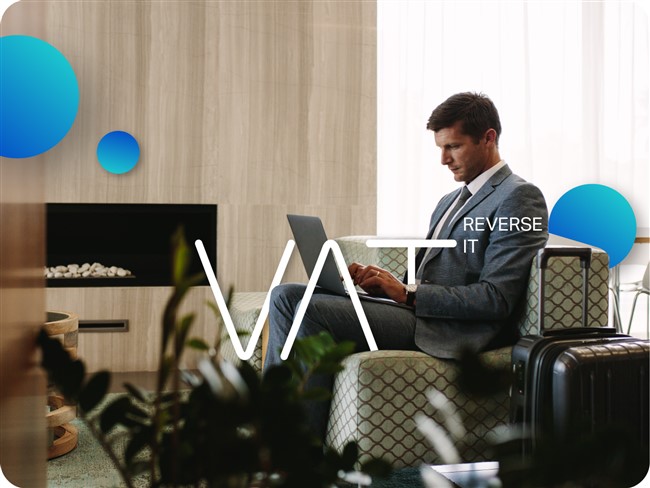Detangling reverse charge for non-established suppliers
Let’s be honest, the VAT principle of the place of supply, combined with the intricacies of the reverse charge, can feel complex to navigate. If you throw non-established suppliers or suppliers with no permanent place of operations in a country into...

Let’s be honest, the VAT principle of the place of supply, combined with the intricacies of the reverse charge, can feel complex to navigate. If you throw non-established suppliers or suppliers with no permanent place of operations in a country into the mix, things get even more complicated. Thankfully, there is legislation to provide some guidance. But first, let’s do a quick reverse charge refresher.
What is the reverse charge?
The reverse charge mechanism’s principle is to transfer VAT liability from the seller to the buyer. The main purpose is to avoid the need for the supplier to register for VAT and account for VAT in a Member State which is not their place of establishment.
How can businesses confirm whether or not this applies to them? Let’s find out.
Introducing Article 194
To reverse charge or not to reverse charge? That seems to be the burning question. However, Article 194 of the VAT Directive offers a middle ground to the debate. Article 194 allows the Member States to implement an optional reverse charge on supplies made by non-established businesses.
However, like most things in the world of VAT - it’s not as straightforward as ticking a ‘reverse charge applies here’ box. Although Article 194 provides guidelines for the reverse charge, the actual adaptation is left to each Member State's discretion. This allows them to dictate how the charge will be implemented into their domestic legislation.
Tweaking the principle
Naturally, as each jurisdiction is given autonomy over how they apply and implement Article 194, businesses are left uncertain about how the principle applies to their specific operations and objectives. We’ve deep-dived into three popular Member States who have decided to adopt Article 194 of the VAT directive into their domestic legislation (and how they did it).
Popular Member States and Article 194
Businesses can do business with an EU country of their choice. However, as previously mentioned, not all Member States have introduced or adopted Article 194. Let’s take a look at a few who did.
Spain:
Spain has introduced an extended version of the reverse charge. A domestic reverse charge will apply if a non-established supplier sells the goods. However, it would only apply if they meet the following conditions:
- A non-established supplier is making the sale
- The service is located in Spain according to the exceptions to the B2B rule (e.g. admission to events)
- The customer is established in Spain for VAT purposes.
The Netherlands:
The Netherlands has introduced the reverse charge on supplies of both goods and services located in the Netherlands. The domestic reverse charge will apply when goods are supplied or services are rendered in the Netherlands by a non-established supplier to a VAT registered and established customer. The supplier doesn't need to be VAT registered.
Portugal:
Portugal’s adaptation of reverse charge has recently been extended. Businesses must meet all conditions for the reverse charge to apply:
- The supplier is not established in Portugal, nor do they have a fiscal representative there.
- The customer is a VAT registered and established taxable person in Portugal or is VAT registered with a fiscal representative in Portugal.
Historically, a domestic reverse charge would not apply if the supplier was VAT registered. However, with these changes, all supplies made by foreign businesses registered in Portugal without permanent establishment or representation will be subject to this application.
For example, suppose you are VAT registered in Portugal because your business makes intra-community acquisitions followed by local sales to established Portuguese clients. In that case, you will no longer charge VAT on your local sales. Instead, you should apply the domestic reverse charge.
We've got you covered if you’re a business owner who needs to grapple with the reverse charge in any of the above countries. Let’s simplify:
Member States and The Reverse Charge 101
Staying in the loop with what’s happening regarding the reverse charge in each country is a monumental task and one that’s tricky to navigate by yourself. Let’s go back to the basics and summarise what Article 194 means for each of the three Member States and in which circumstances it applies. Here's a quick reference guide catching you up to speed.
| Spain |
Netherlands |
Portugal |
|
| Who supplied it? |
A supplier who is not established in Spain, whether VAT registered or not. |
A supplier who is not established in the Netherlands, whether VAT registered or not. |
A supplier who is not established in Portugal and does not have a fiscal representative there, whether VAT registered or not. |
| Who bought it? |
A taxable person, whether they are established or not and whether they are VAT registered or not. |
A taxable person, both VAT registered and established in the Netherlands. |
A taxable person, both VAT registered and established in Portugal, or VAT registered with a fiscal representative. |
| What was sold? |
Any goods OR supplies of services located in Spain, where the customer is established. |
Any supply of goods or services located in the Netherlands. |
Any supply of goods or services located in Portugal. |
It’s tricky - we get it
Taking the time to figure out how various Member States have opted to apply the reverse charge regarding non-established suppliers can be both frustrating and time-consuming, and as the saying goes, “Ain’t nobody got time for that!”
Contact the experts, and we’ll get you on the right track.
Related blogs
VAT refund Tool kit
Contact Us
Come explore your refund possibilities.
Chat with us today.
Find out how you could turn company spend into income




